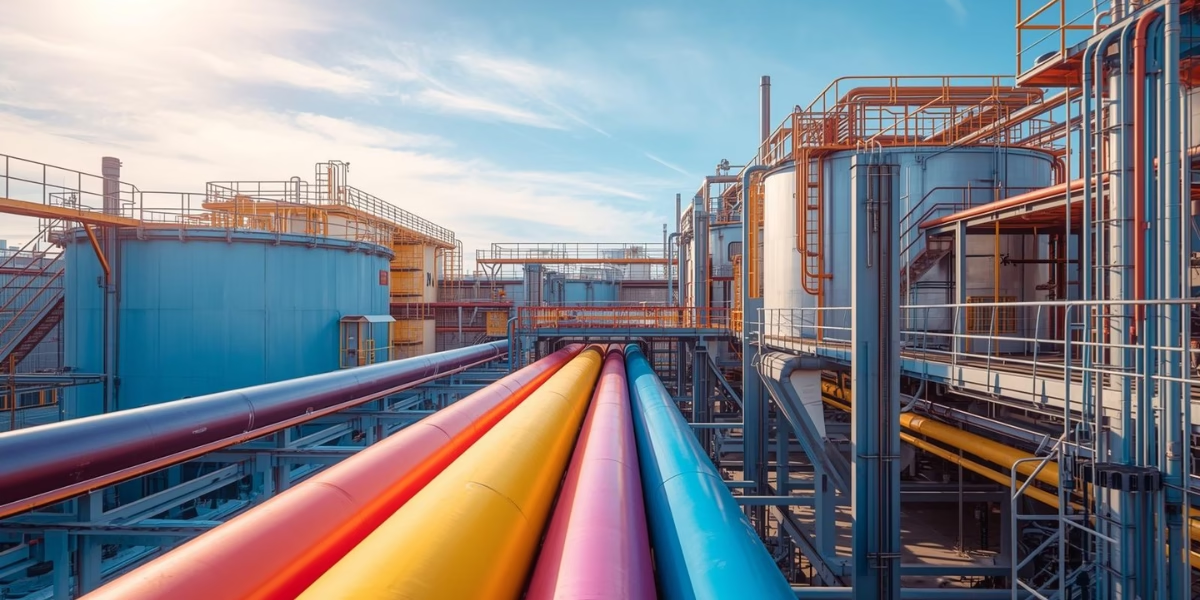In chemical plants, corrosion is a constant challenge. It damages equipment, increases maintenance costs, and affects overall safety. That’s why choosing the right material for tanks, pipes, and vessels is so important. One proven solution is vinyl ester resin, a material known for its strength, durability, and resistance to chemicals.
Understanding Vinyl Ester Resin
Vinyl ester resin is made by combining epoxy resin with unsaturated acids. This structure gives it the best features of both epoxy and polyester resins. It offers strong resistance to corrosion, high mechanical strength, and durability under harsh industrial conditions. This makes it perfect for chemical plants where equipment faces acids, alkalis, solvents, and high temperatures.
Why Vinyl Ester Resin Works Well for Tanks, Pipes & Vessels?
Vinyl Ester Resin Has Excellent Chemical Resistance
Vinyl ester resin can withstand a wide range of aggressive chemicals. It forms a strong barrier against acids, alkalis, and solvents, protecting the equipment from corrosion.
Long Life Under Stress
Tanks and pipes made with vinyl ester resin last longer because the material can handle temperature changes, pressure, and chemical exposure without losing strength. This reduces downtime and maintenance costs.
Strong Yet Flexible Design
Vinyl ester resin is commonly used in fibre-reinforced plastic (FRP) products. These are lightweight, corrosion-resistant, and can be made in any shape or size, ideal for complex plant designs.
Vinyl Ester Is Cost-Effective in the Long Run
While the initial cost may be higher than metal or polyester systems, the lower maintenance and longer service life make vinyl ester a smart investment for chemical plants.
Applications in Chemical-Plant Equipment
Tanks: Vinyl ester FRP tanks are used for storing acids, bleach, and solvents. Unlike metal tanks, they don’t need internal coatings and resist corrosion naturally. Derakane-grade resins are a common choice for such applications.
Pipes: Pipes that carry caustic soda, acid solutions, or solvents face high corrosion risks. Vinyl ester pipes made by filament winding or pultrusion methods provide strong, leak-free performance and long-term reliability.
Vessels and Process Equipment: Vinyl ester resin is used in reactors, scrubbers, and mixing vessels. It handles chemical attacks, pressure changes, and temperature fluctuations with ease, making it suitable for continuous chemical processing.
Key Factors for Successful Use
For best results, choose the correct vinyl ester resin grade according to the type of chemical and operating temperature. Proper fibre orientation and corrosion barrier thickness are also crucial. Good fabrication quality ensures the material performs as expected. Regular inspections help detect early signs of wear or damage. Though the upfront cost may be higher, the long-term performance makes it worth the investment.
Concluding Thoughts
Vinyl ester resin is a reliable material for tanks, pipes, and vessels used in chemical plants. It provides outstanding corrosion resistance, high strength, and flexibility in design. When correctly specified and maintained, it extends equipment life, improves safety, and reduces operational costs. In short, vinyl ester resin is not just a protective coating material, but a powerful material that helps industrial systems perform efficiently in the most demanding environments.
COMPANY INFO
Website: www.crestresins.com
Phone: +91 9879233188
Email: enquiry@crestresins.com
Address: 605/A, 6th Floor, Tower D, Times Square Grand Office, Sindhubhavan Marg, Near Taj Hotel, Ahmedabad, Gujarat - 380059

